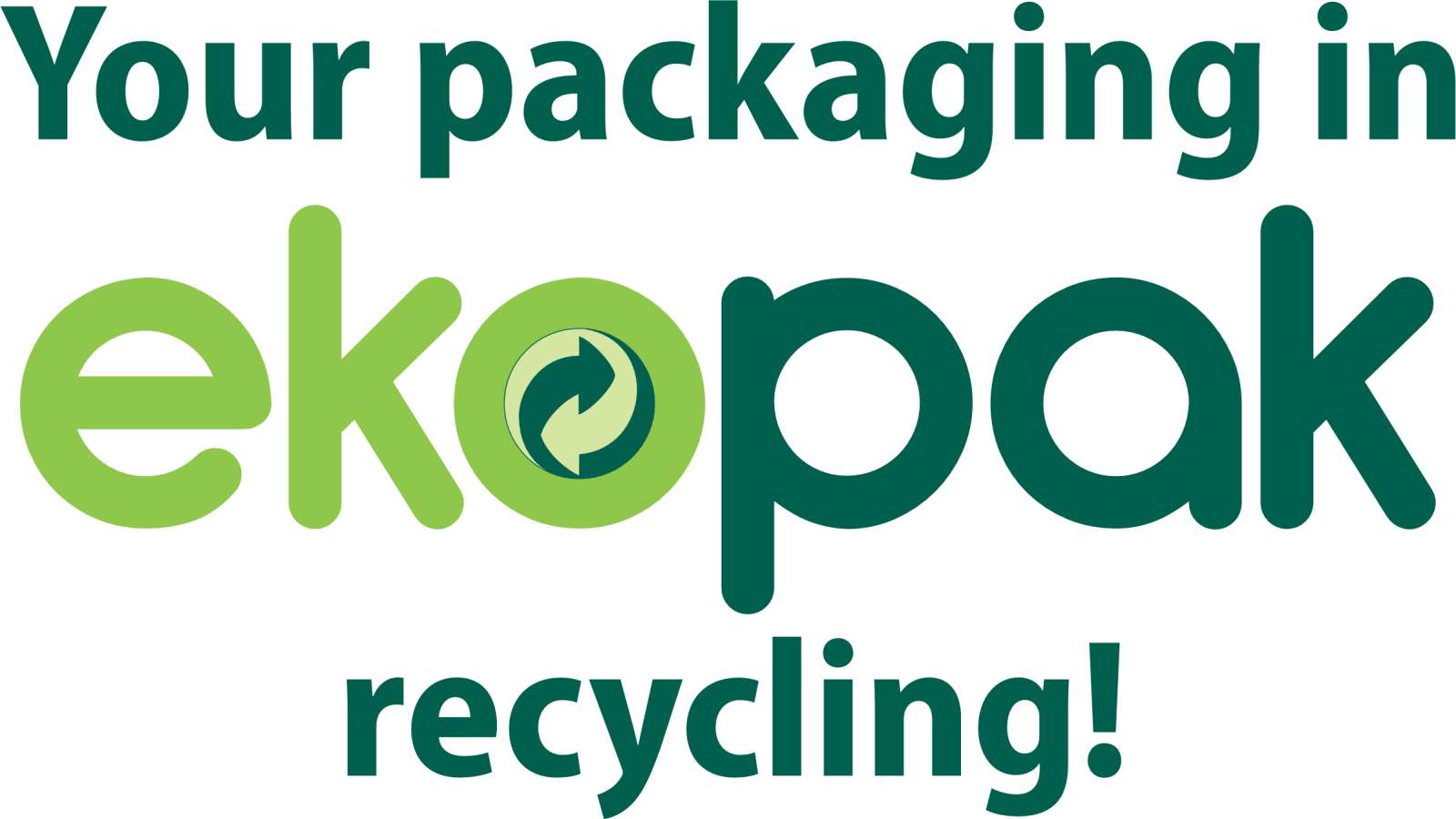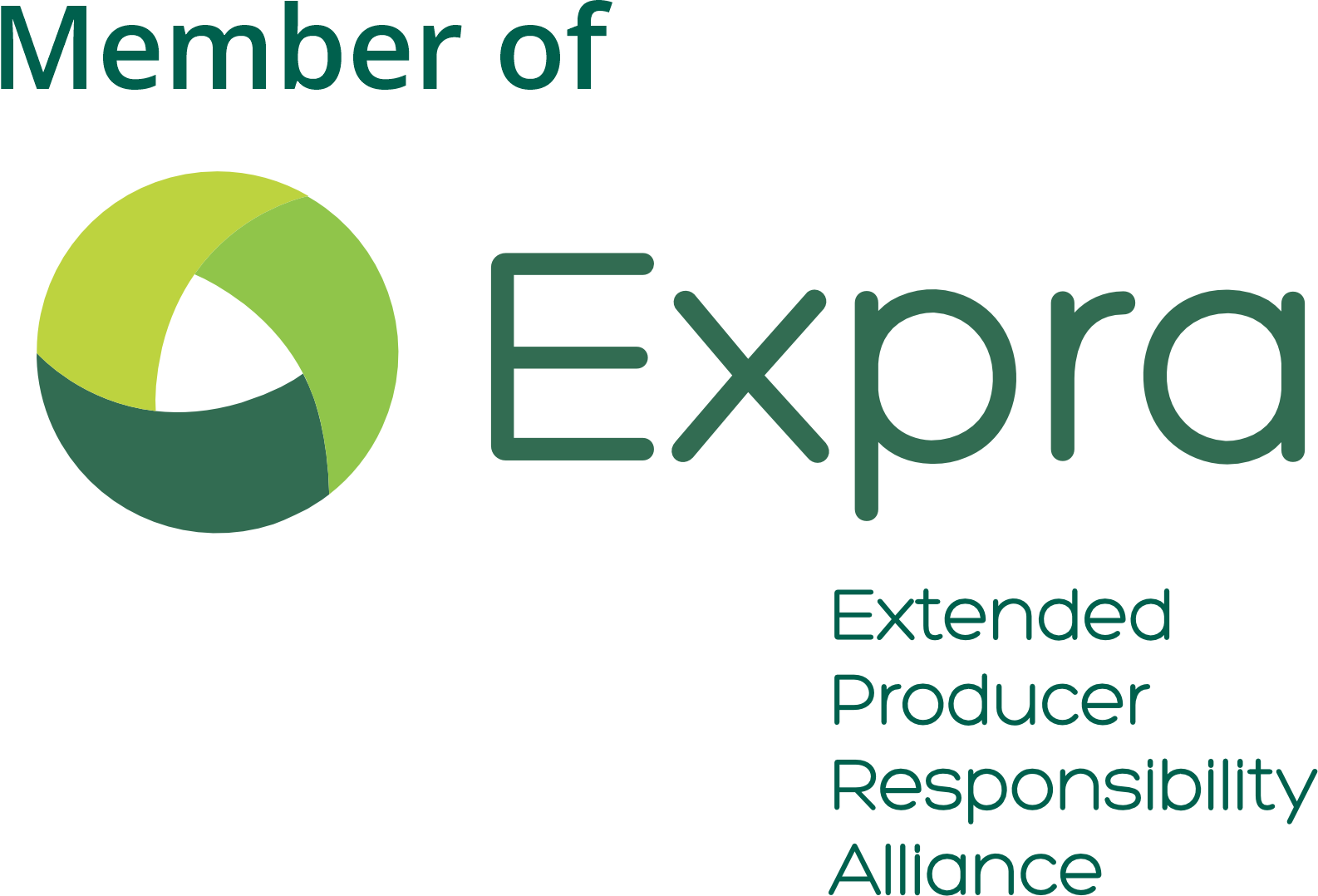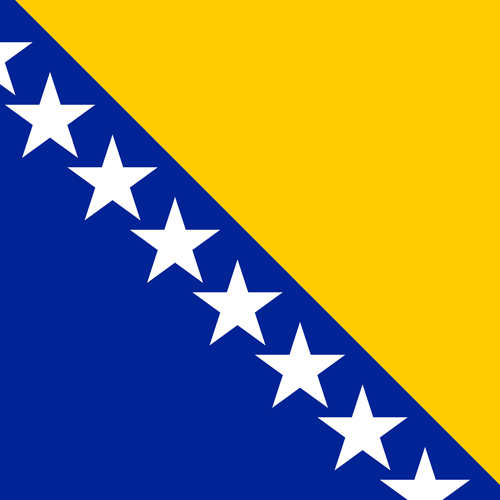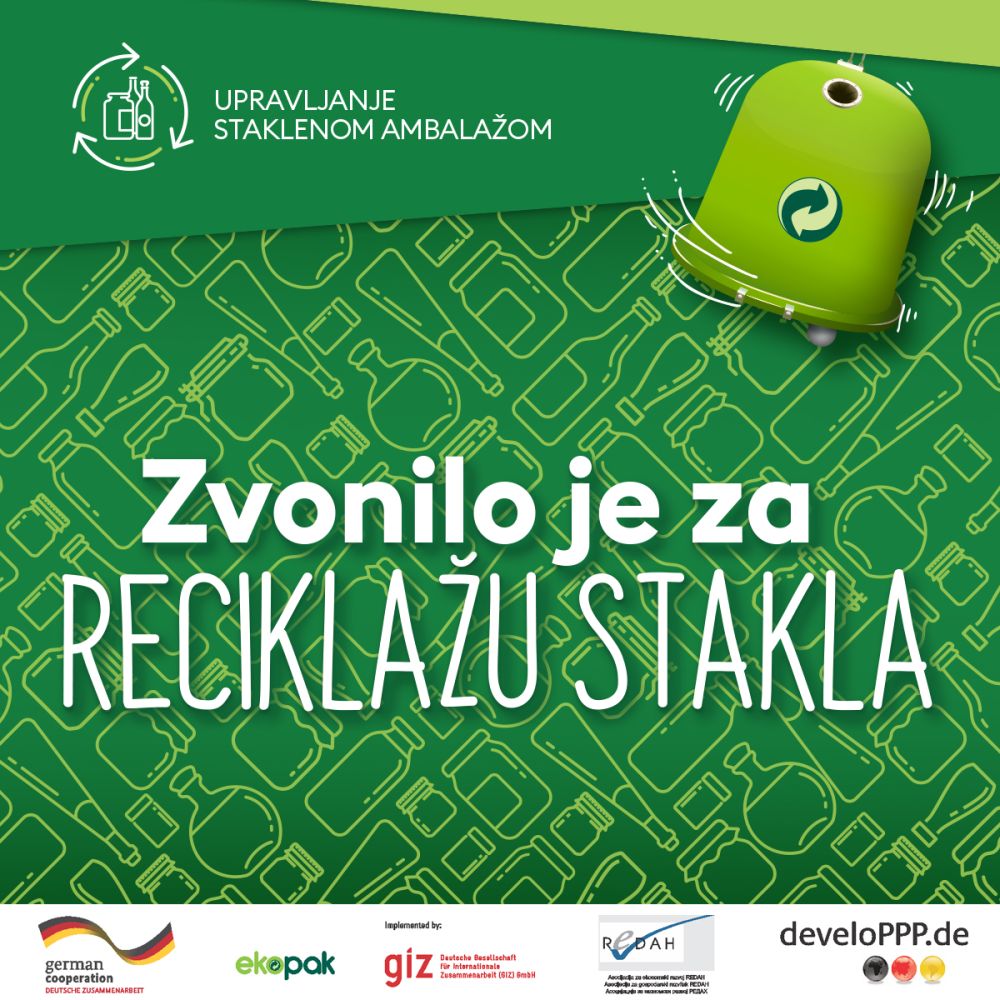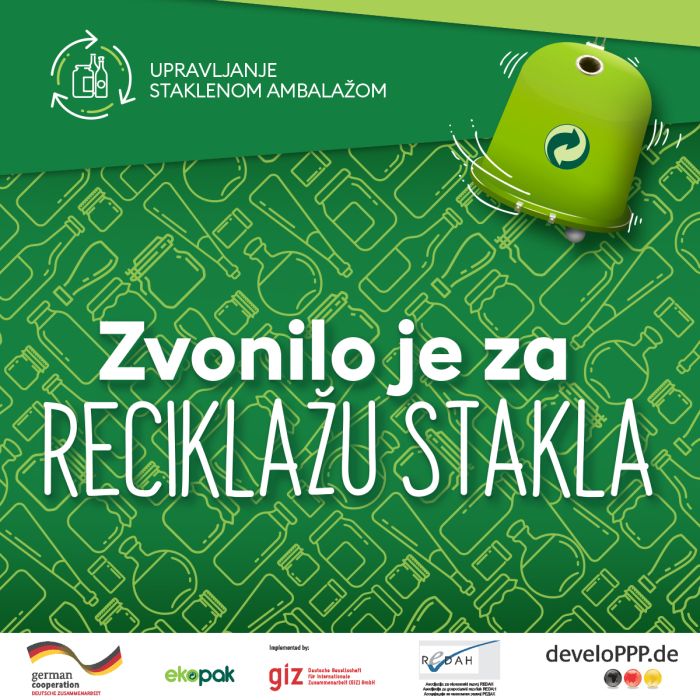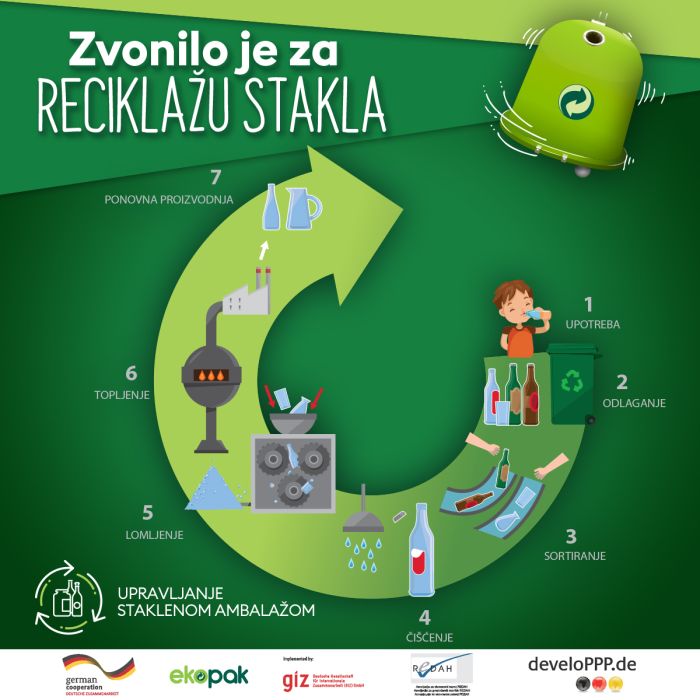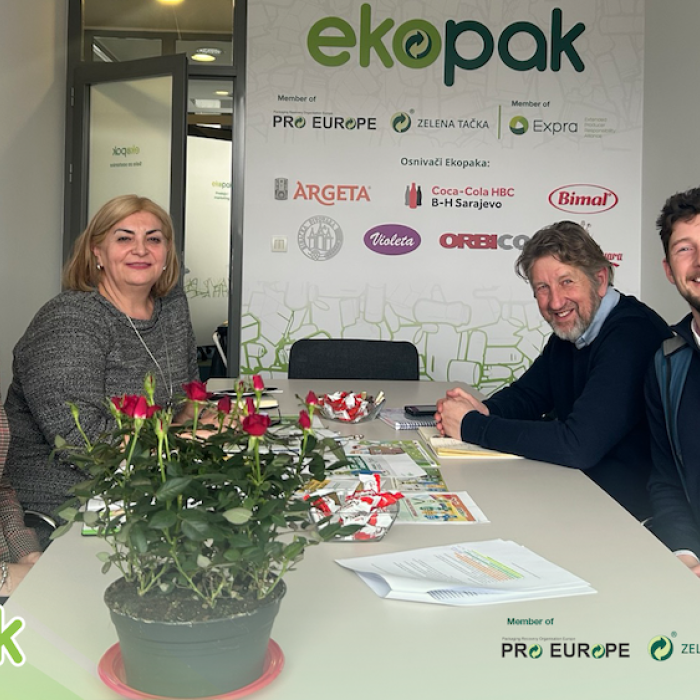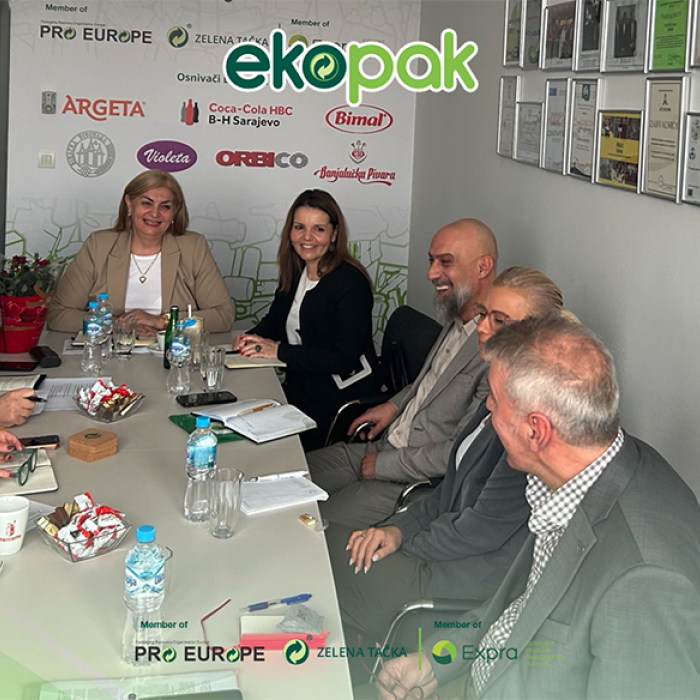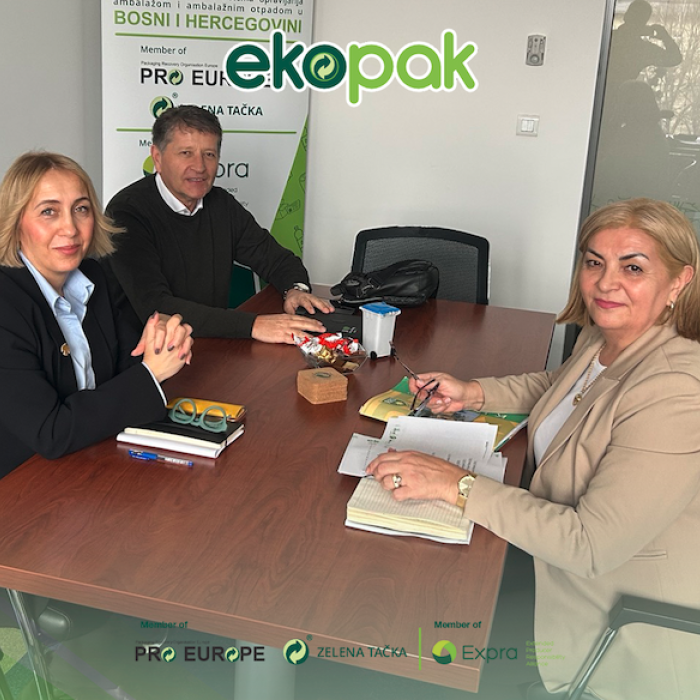A project to increase the amount of recycled glass has begun as another step towards the European Union: The region has united with a common goal
The amount of recycled glass packaging in the Western Balkans region is still far from the level prescribed by the European Union. While EU members recycle 70% of glass packaging annually, in Serbia this amount is only 44%, in Northern Macedonia 30%, and in Bosnia and Herzegovina the target is 12%. This facts were presented under the project "Management of glass packaging in the Western Balkans" on the regional online conference.
The project was initiated by the German Development Cooperation - GIZ, in cooperation with packaging waste operators - Sekopak, Pakomak and Ekopak and will be implemented in Serbia, Northern Macedonia and Bosnia and Herzegovina, with NALED, Redah and Zels as implementation partners.
"In the process of joining the EU, Germany is fully committed to supporting partners in the Western Balkans in addressing environmental challenges. In the waste management sector, many countries in Europe face a number of difficulties, especially when it comes to packaging waste. These challenges cannot be overcome by one actor because they require a combined force and a strong and lasting partnership. That is why German Development Cooperation supports our partners to enable a cost-effective glass recycling value chain. We hope to create a better future together ", said Christian Schilling, Head of the Development Cooperation Department at the German Embassy in Belgrade.
It was pointed out at the event, that in order to improve the framework conditions for establishing an economic value chain of glass recycling in the region, it is crucial to increase the amount of collected glass, as well as to set preconditions for the reuse of glass waste.
"We started the project ambitiously and about 1,000 recycling containers started arriving in Sombor, Nis, Bihać, Novi Travnik, Stip and Ilinden this month. The complete equipment will be installed by the end of March and with our partner operators, I am sure that we will easily achieve one of the main goals, to increase the collected quantities in these municipalities by 20% ", said Violeta Jovanović, Executive Director of NALED.
Since 2013, Ekopak has been working on the development of a packaging waste management system in our country, within which the collection of glass packaging waste has been initiated. An appropriate level of recycling has been achieved, which is not small for our circumstances. In total, we have so far collected and handed over for recycling more than 5,000 tons or about 300 trucks of this type of packaging waste alone.
''However, there is room for improvement, so we are happy to join this regional project, because one of the goals is to increase the amount of glass packaging collection in pilot municipalities in all three countries by 20%. The City of Bihać and the Municipality of Novi Travnik were not chosen by chance. Ekopak has a long-term successful cooperation with the Public Utility Companies Komrad Bihać and Vilenica Čistoća Novi Travnik, which collect and deliver not only glass packaging waste, but also plastic, paper and multilayer packaging to the Ekopak system. In addition to this plan to increase the collection rate of glass packaging, the goal is to lay the foundations for a cost-effective chain of glass recycling and get a model that would be applied to other municipalities in the Federation of Bosnia and Herzegovina, which will be our contribution to the circular economy of the country, " said the Managing Director of Ekopak, Amela Hrbat
The conference brought together all project partners, as well as the mayors of the pilot municipalities who concluded that it was crucial to take a step towards a profitable circular economy in the region. The glass packaging management project is implemented within the development cooperation program and private sector - develoPPP.de funded by the German Federal Ministry for Economic Cooperation and Development.
